When a South African issued document is to be used for official purposes in another country, it may be necessary to have the document verified and validated. You might think “But it was issued by the government. It’s already valid.” Unfortunately, this is not the case. Based on international conventions, any government-issued document requires additional validation to be used abroad with foreign governments. The process of legalising those document is known either as an “apostille” or “certificate of authentication.
In 1961, many countries came together to create a simplified method of ‘legalising’ documents for universal recognition. In other words, it is an international treaty drafted by the Hague Conference on Private International Law. Members of the treaty, known as the Hague Convention, adopted a document called an apostille that would be recognised by all member countries.
The Hague Convention, to which South Africa is a signatory, makes it possible to accept apostille certificates as valid evidence of legalisation for all countries that have signed the Convention. If a country does not accept apostilles, documents must be authenticated and then processed by the local embassy or consulate of that country.
Understanding the difference between a DIRCO Apostille Certificate and a DIRCO Authentication Certificate is crucial when using documents internationally.
DIRCO Apostille certificate for Hague member countries
South Africa is a member of the Apostille Convention. This means that South Africa can issue apostilles for its own documents, and South African’s government accepts apostilles issued by other governments of the convention.
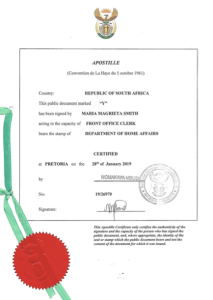
The Hague Apostille is issued by the Department of International Relations and Cooperation (DIRCO) in South Africa. It is an A4 certificate attached to the original document with a green ribbon and bears a red seal. It is issued in English, the official language of the issuing authority, but the heading “Apostille (Convention de la Haye du 5 octobre 1961)” must be in French. In simple terms, an apostille is an international certification, similar to a notarisation in domestic law, which attests to the authenticity of the signature, the capacity in which the signer acted and the authenticity of the seal affixed to the document. Each apostille is registered and contains the date of issue and a unique number.
The application of this Convention has changed the way documents are recognised worldwide. It has made it easier and less costly for citizens of member countries to use official documents across borders, allowing documents issued in one member country to be used for legal purposes in other member countries. The Hague Convention currently has more than 120 country-members, a list of which can be found here.
DIRCO Authentication certificate and embassy Legalisation for Non-member countries
Countries that are not part of the Hague Convention don’t recognise apostilles. Instead, they have their own legalisation process. Typically, this process involves an authentication certificate and embassy legalisation.
- Authentication: The first step in this process is for the issuing government to verify the authenticity of a document or signature. In South Africa, this process is carried out by the Consular Section of the Department of International Relations and Cooperation (DIRCO) in Pretoria. Dirco legalises the document by also issuing an A4 certificate, which is attached to the original document with a green ribbon, but its content is different, it simply confirms the authority of an official who has signed the document.
- Embassy legalisation: The 2nd and final step of the process is for the local embassy or consulate of the destination country. After verifying the DIRCO authentication certificate, the embassy or consulate will stamp, seal and/or sign the document, legalising it for use in that country.
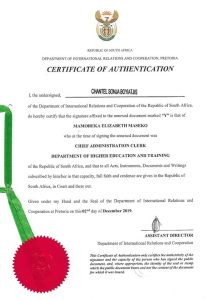
Embassy legalisation is the alternative method of authenticating a document used for non-Hague Convention countries, but the authentication and embassy legalisation process is more complex and time-consuming than the apostille process. It is also more expensive, as embassies often charge fees for processing the document. As of 2024, there are about 51 countries in the world have not joined the Hague convention. These includes, UAE, Angola or Zimbabwe.
Conclusion
In summary, the DIRCO Apostille Certificate and the DIRCO Authentication Certificate both serve the same purpose, but the Apostille Certificate legalises a document for use in all other countries that are signatories to the Hague Convention. The Authentication Certificate followed by Embassy Legalisation, on the other hand, makes a document legally valid in countries that are not part of the Convention.
Navigating the intricacies of Apostille, Authentication and Legalisation can be challenging and time consuming. For those who require assistance in certifying personal or corporate documents, whether through the Apostille or Authentication and Legalisation process, professional guidance is available.
Seeking professional services, such as those offered by Global Apostille’s Legalisation Services, will greatly simplify the Apostille process and ensure that your documents are properly validated for international use. For more information, please contact us at: Tel: 012 348 3134; Mobile: 081 347 6060; Email: info@apostillelegalisation.co.za

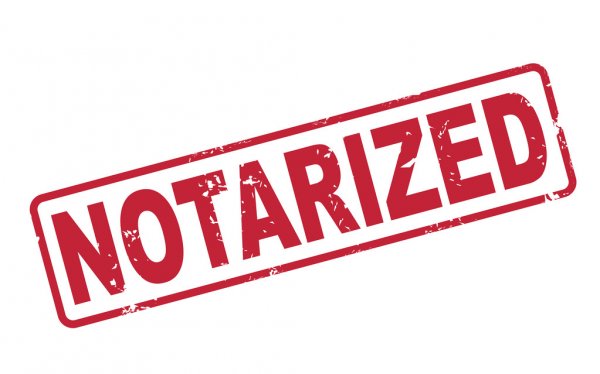

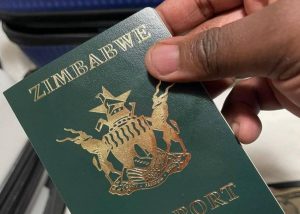
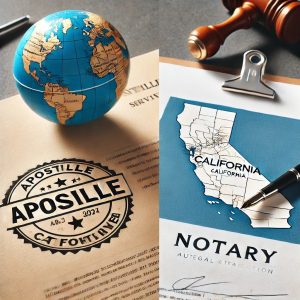



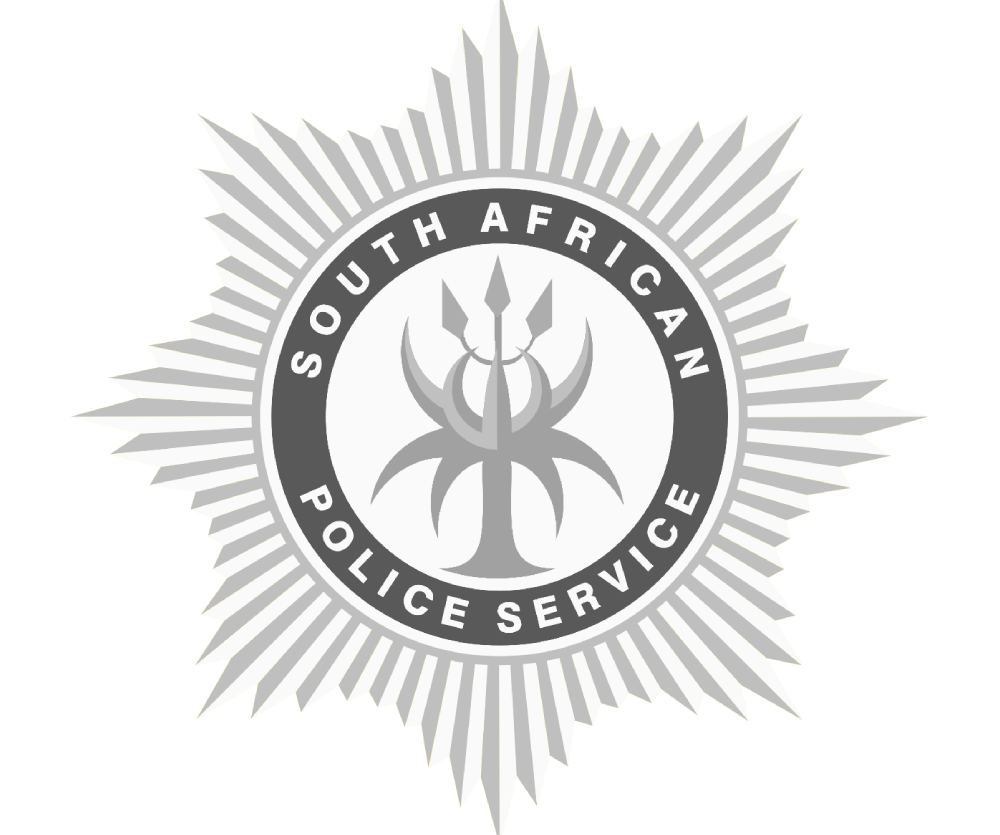
1 thought on “What is the difference between DIRCO Apostille certificate and DIRCO Authentication certificate?”
What is the Global Apostille Services Address in Durban?